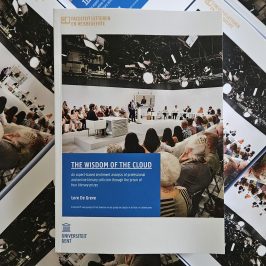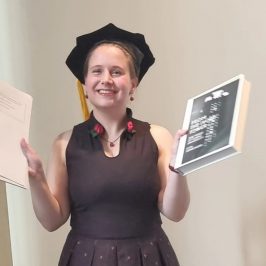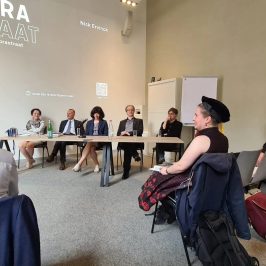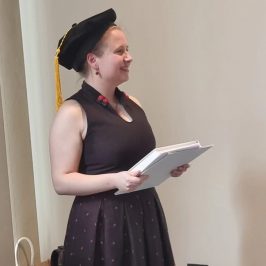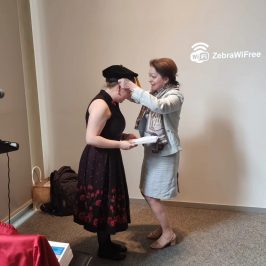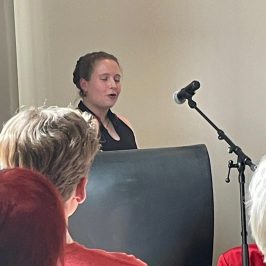On April 30th 2024, I successfully passed my public doctoral defence and presented my dissertation “The Wisdom of the Cloud: An aspect-based sentiment analysis of professional and online literary criticism through the prism of four literary prizes“, a tome of over 700 pages. The jury consisted of four innovative and established experts within the field, namely Prof. Massimo Salgaro (U of Verona, Italy), Prof. Berenike Herrman (U of Bielefeld, Germany), Prof. Thomas Ernst (U of Antwerp, Belgium) and Prof. Daan Vandenhaute (Ghent University). It was an honour to able to spend four-and-a-half years on research that I am passionate about surrounded by such researchers, the best supervisor, co-supervisors and colleagues. I am very proud that I may now call myself Doctor of Linguistics and Literature.
My dissertation is a computational and digital analysis of online and professional literary criticism in the context of 4 literary prizes: the Ingeborg-Bachmann-Preis, the Georg-Büchner-Preis , the Not The Booker Prize and the Man Booker Prize. You can consult the dissertation here.
Summary
The past decades are characterised by the rise of social media. People can now share their opinion on a plethora of platforms that each have their own focus, such as Facebook, Twitter, Instagram, Snapchat or TikTok. These platforms are accessible to all (with the exception of some age restrictions or censure), and have enabled people to form connections across the globe. This way, social media platforms have led to both a democratisation and globalisation of the public sphere. The knowledge of professional “pundits” is rivalled and challenged by technological developments and the reliance on “the wisdom of the crowds” or, in these digital times, the wisdom of “the cloud”. This dissertation examines and compares a decade worth of the literary criticism of both professional and online critics through the prism of four literary awards from two language communities. For each language community, we looked at one academy-driven and one more audience-geared prize. Each of these awards has a different architecture and offers varying levels of transparency and audience participation. We focus on the discourse and “talk of literature” surrounding the German-language Ingeborg-Bachmann-Preis, which serve as the central corpus, and Georg-Büchner-Preis, as well as the English-language Not The Booker Prize and Man Booker Prize. On the one hand, this dissertation analyses the evaluative discourse of the prizes’ official jury. On the other hand, it delves into the discussion of the prizes on two social media platforms, namely Twitter and Instagram. Consequently, we present a qualitative and quantitative research into the perceptions of readers by means of a digitally empowered method of literary sociology. Using an innovative digital method facilitates the processing of vast amounts of social media contributions and jury reports. In doing so, the focus lies 1) on the relation between professional and online critics, 2) on which literary criteria are used to discern “good” from “bad” literature, 3) on the evolution of literary criticism over time, and 4) on the influences that shape the literary criticism, such as the employed medium or platform, the architecture of the prize and the cultural context. This will also enable us to identify the differences between the discussion of academic prizes, on the one hand, and of literary prizes that draw on audience participation, on the other hand, as well as to look at the overarching opposition between the literary discourse of the “professional” and the “other”.
